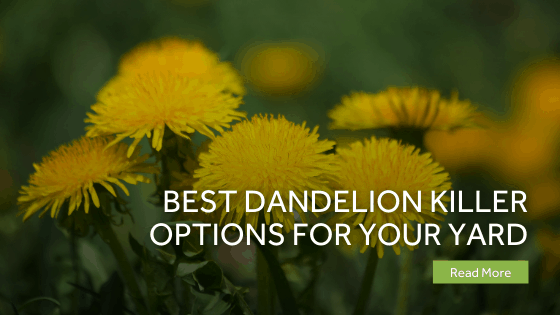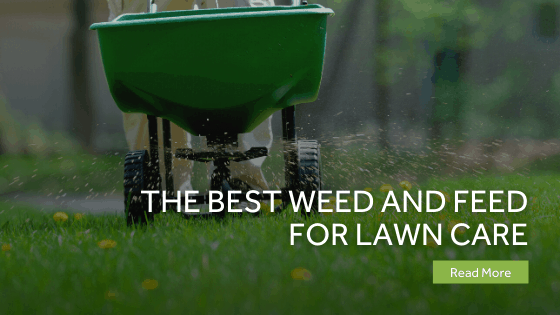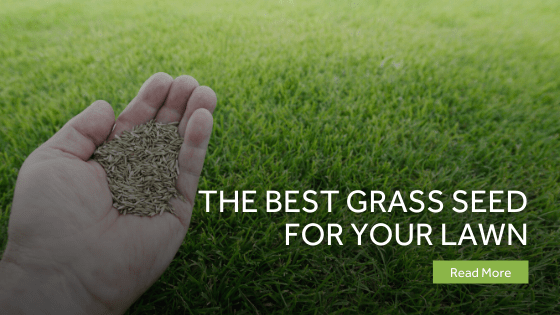If you’re tired of the use of chemicals and toxins in your garden, such as when it comes to fertilizers, you’re probably tempted to have an organic garden instead. This has many benefits for your health, the environment, and the wellbeing of your garden.
What is organic gardening, exactly? We hear the term a lot and it refers to the practice of avoiding the use of synthetic fertilizers and chemical pesticides, but it’s also a philosophy that’s about ensuring the health of your entire garden.
It can seem overwhelming to know where to start with your organic garden, but the key is to start small and do what you can, and then slowly work towards making your entire garden more organic.
Interested?
Let’s check out some pros and cons of organic gardening so you can find out if it’s right for you.
Table of Contents
Organic Gardening: Pros
We’ve mentioned that organic gardens can benefit your health and that of the environment, but what can they actually do for you and your garden?
Organic gardening has many pros, such as the following:
It Prevents The Death Of Wildlife
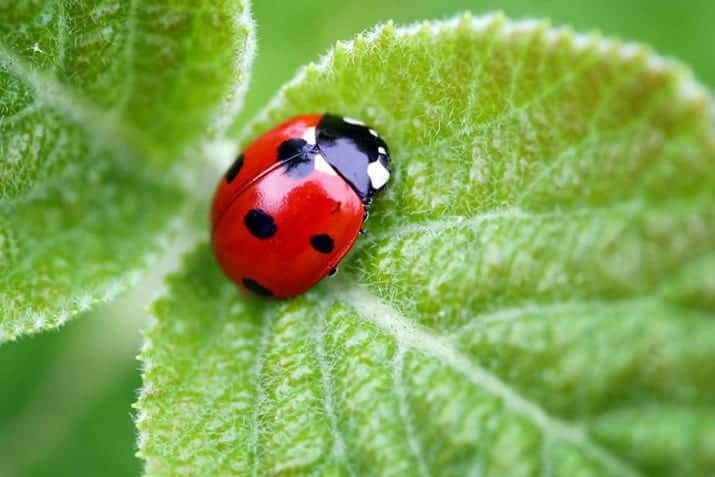
There is so much wildlife in the garden that needs to be protected so that it can benefit the growth of your grass and plants.
If you use chemical pesticides, for instance, these can harm the birds, bees, and other creatures.
Alarmingly, pesticides are dangerous to your garden wildlife because they are nondiscriminatory. While you use them to get rid of pests in the garden, they don’t stop there – they can kill insects and creatures that are doing good things for your plants, such as butterflies that pollinate flowers.
It’s Cheaper To Do In The Long Run
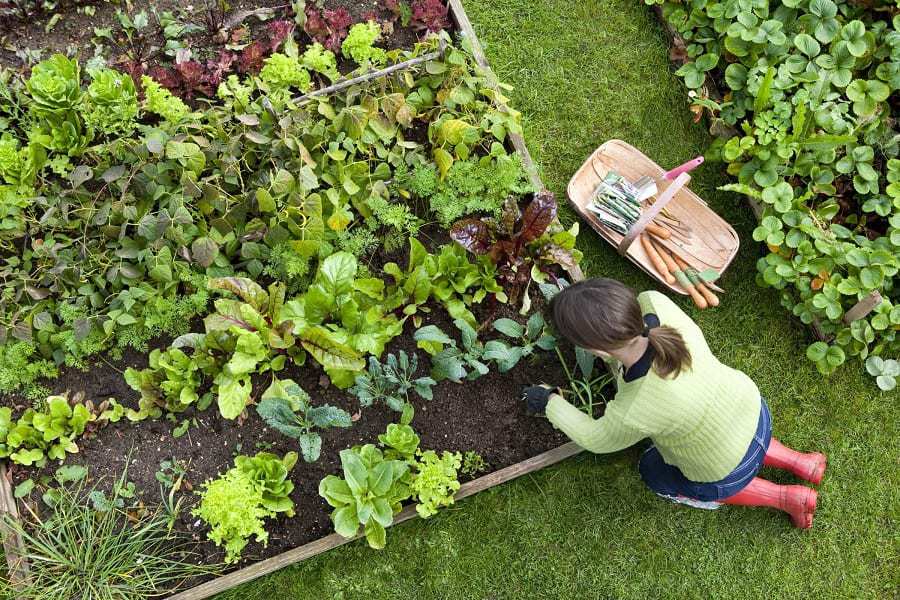
It might be a bit costly to purchase organic items for your garden, such as fertilizer.
Organic fertilizer has less concentrated level of nutrients per weight of product when compared to chemical fertilizers, and this is what can make it more expensive to purchase.
However, in the long run organic gardening is much cheaper.
This is largely because you can make many of the things you need yourself by using what you already have, and examples of this include natural weed control as well as organic fertilizer recipes.
Organic Fertilizer Prevents The Harmful Effects Of Nitrates
Nitrate fertilizers have many damaging effects: they make earthworms sick and damage the soil’s natural ecology.
They also become cell-damaging nitrates when we first use them to grow vegetables and then later eat that produce, as Vegetable Gardening with Lorraine reports.
You Ensure Healthier Air, Land, And Water
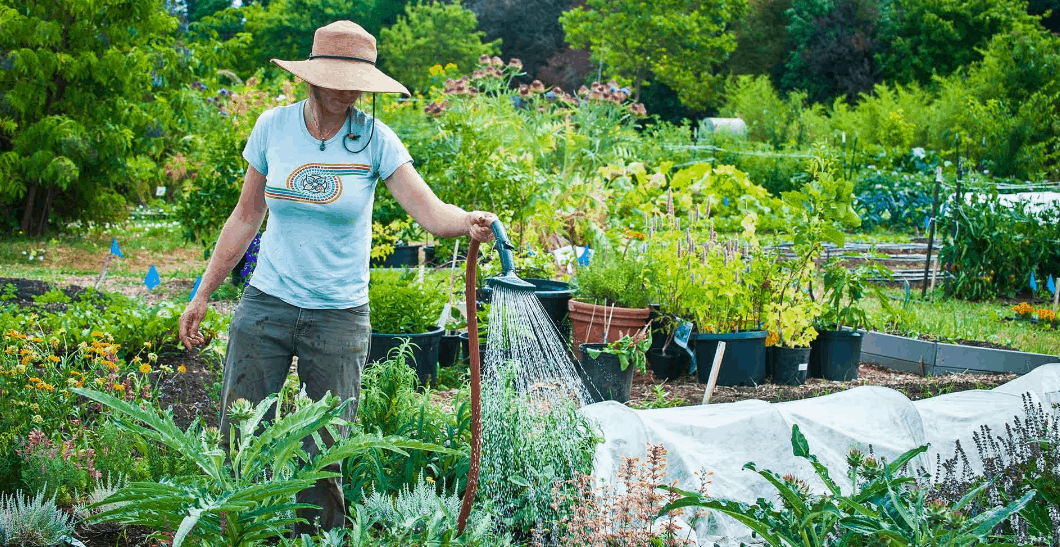
Chemical pesticides don’t just harm organisms within close proximity.
When they are sprayed onto a surface, they manage to travel beyond their intended area where they get into the nearby soil, water, and air. This pollutes the environment, not just one patch of soil, and that’s what makes pesticides even more dangerous.
Organic Produce Tastes Better
If you want to grow your own produce, you’ll be pleased to know that it will taste better – and it’s not your imagination when you bite into a juicy tomato or peach that comes straight from your garden.
The reason why organic produce tastes much better than conventionally-grown produce is that it grows more slowly and has lower water content. This makes its flavor much more pronounced.
But it’s also healthier to eat produce that has been grown organically.
National Geographic reports that when there’s no use of chemical pesticides to grow produce, plants will be forced to grow their own compounds (known as antioxidants) in order to maintain their own health and fight against damage. When we consume these antioxidants they also make us healthier, such as by keeping illnesses like cancer at bay.
Cons Of Organic Gardening
Organic gardening really sounds great, but it’s not without some disadvantages.
Here are some to consider.
Organic Gardening Takes More Effort
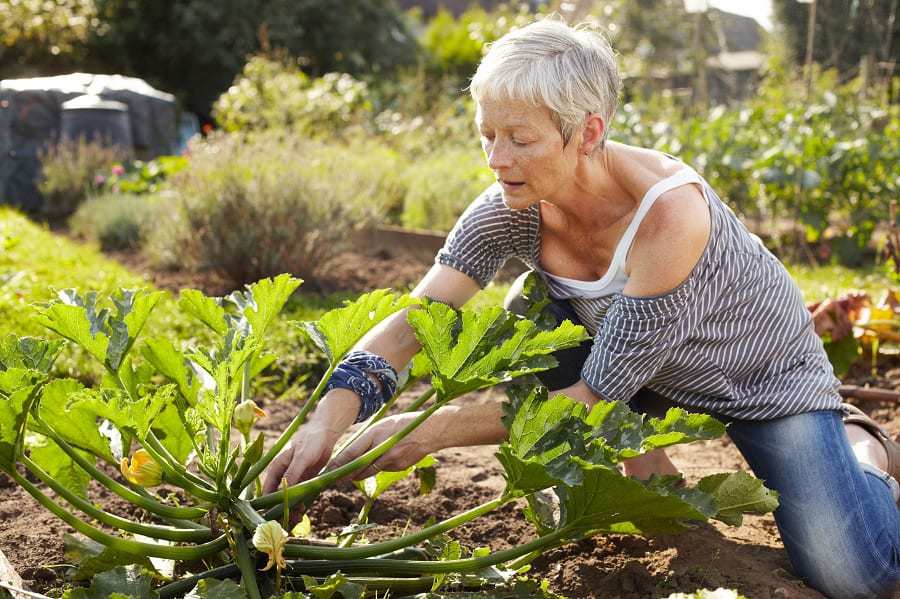
It’s not always convenient to engage in organic gardening.
When you make your own compost or fertilizer and then apply it to your garden, it can take a lot of time.
If you’re a gardening enthusiast who loves spending a lot of time on gardening tasks, then this won’t be a problem for you. But if you’re a beginner or you want quick results, then it can be an obstacle.
You Have To Be Patient To See Results
Sometimes organic gardening can take more time to show you results, so it’s not a quick-fix solution in your garden.
This has been shown to be the case when it comes to organic fertilizers.
They don’t always release the nutrients your soil requires as quickly as you need them. This could cause you to reach for chemical fertilizers that work to improve your garden within a few days.
It’s also worth considering that sometimes the nutrient content in organic fertilizers can be less than what is found in chemical fertilizers.
That said, some organic products can have higher concentrations of various nutrients, so you have to work with your soil and find out what it needs so that you can give it the right nutrients.
How To Make Your Own Organic Fertilizer
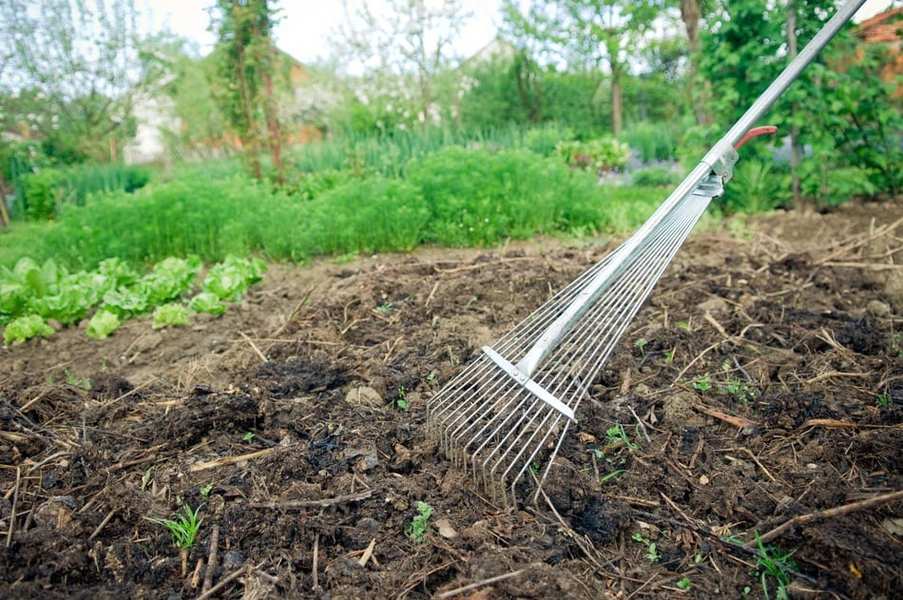
If you’re still interested in organic gardening, a great first step to getting started is to make your own organic fertilizer.
Luckily, this doesn’t have to take a lot of time or be expensive.
Here are two easy recipes on how to make it by reusing scraps in your home so nothing has to go to waste, courtesy of Grow And Make.
Recipe 1: Organic Liquid Fertilizer From Veggie Scraps
What you’ll need:
- Vegetable scraps
- Epsom salt
- Water
- Bucket
- Blender
How to make it:
- Save cooked or raw veggie scraps, such as peels, but make sure to store them in the freezer until you’re ready to use them in this fertilizer recipe.
- You can also save water from cooking, such as water that you’ve used to boil vegetables, as this is filled with nutrients.
- Thaw out your veggie scraps and use a blender to give them a smooth consistency.
- Put this liquid into a bucket, then add ½ a teaspoon of Epsom salt, and cooking water you’ve previously stored.
- For every blender-full amount that you have, add another ½ teaspoon of the salt.
- Once you’re done, give the bucket a good stir and leave it overnight.
- The next day, you will add the liquid fertilizer you’ve made to a gallon of lukewarm water.
- Mix it well and then add this to the base of your plants.
Why Epsom salt is so good for plants: It helps flowers to bloom and even makes plants greener in color.
Epsom salt contains hydrated magnesium sulfate, which is important for plants to grow in healthy ways, as Gardening Know How reports.
Recipe 2: Organic Liquid Fertilizer From Yard Trimmings
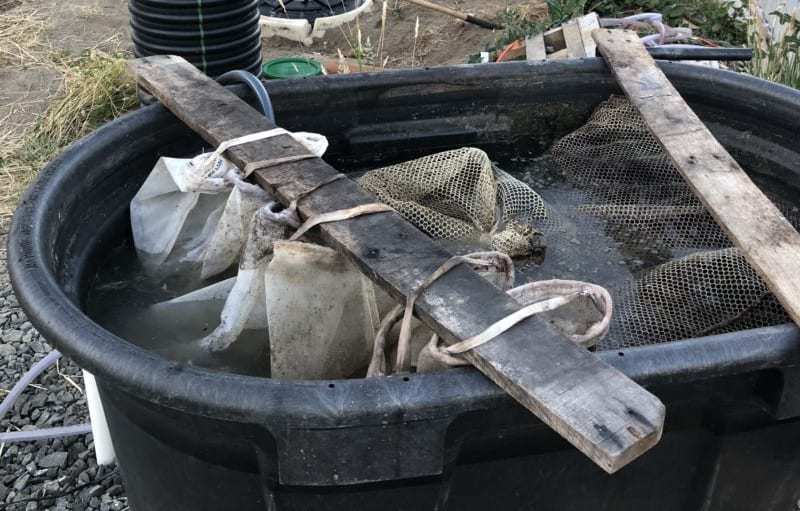
What you’ll need:
- Any yard trimmings, such as weeds and grass clippings
- Bucket
- Water
How to make it:
- After you’ve collected the clippings, place them in a bucket.
- Pour water into the bucket and leave the yard trimmings to steep in the water for about four weeks.
- When that time is up, you can apply this fertilizer to your plants.
Tips For A Quick And Easy Organic Fertilizer If Your Plant Needs TLC
Although organic fertilizers generally need time to work, there are some natural ingredients you can use on plants when they’re in need of assistance, such as if their leaves have become yellow.
Since leaves absorb nutrients in a more direct way than soil, you can give the plant some fast nutrients when needed.
Spray a soluble organic fertilizer onto the leaves, and great examples of these are fish emulsion or seaweed extract, as Lohud reports. You can find both of these products on Amazon, such as this one.
Related Questions
When should you apply organic fertilizer to your garden?
Try to stick to fertilizing your soil with organic fertilizers a few weeks or even months before you want to plant things in it as this gives the nutrients a chance to work and get absorbed by the soil.
Are grass clippings good for the soil?
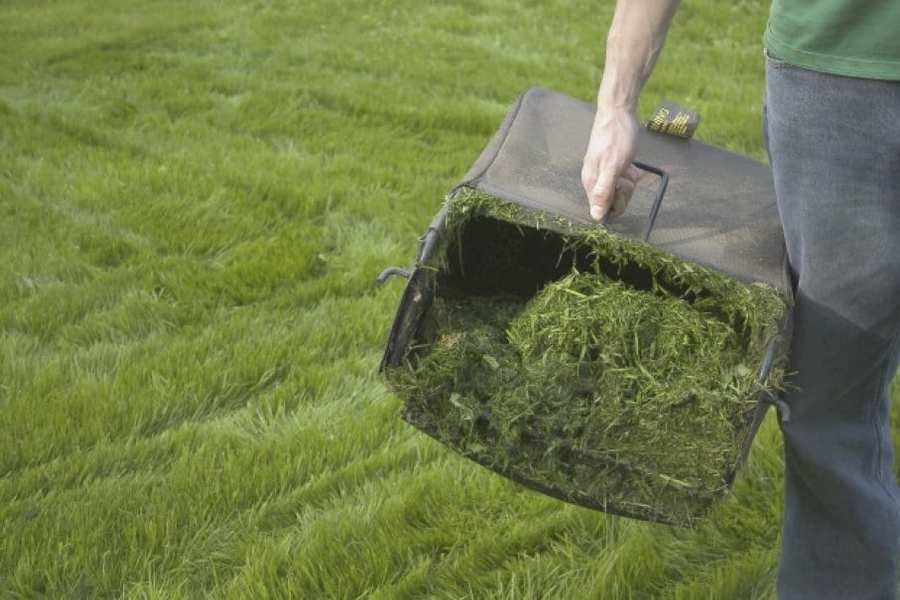
Yes – they contain a lot of nitrogen and potassium, both of which your plants need to be healthy, so it’s great to be able to use them in your garden instead of throwing them out and wasting them.
Conclusion
If you’re interested in the idea of organic gardening, it’s good to consider both the pros and cons of getting started.
We’ve outlined both in this article, as well as offered you tips on how to fertilize your garden the completely natural way.
Last Updated on July 26, 2021 by Gustaf Johansson


